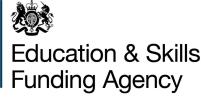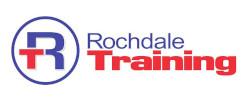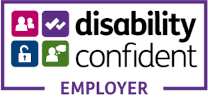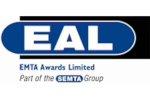Standard Title |
Teaching Assistant Standard Level 3 |
Brief Description |
Teaching Assistants work in Primary, Special and Secondary education across all age ranges encompassing special educational needs and emotional vulnerabilities. The primary role of the Teaching Assistant is to support the class teacher to enhance pupils’ learning either in groups or individually, ensuring pupils understand the work set, know their learning objectives and stay on task in order to make progress. Promoting self-belief, social inclusion and a high self-esteem play an integral part to pupils’ well-being; ensuring pupils thrive in a positive, nurturing, safe environment. It is an active role supporting the learner to access the curriculum. They are good role models, act with honesty and integrity, take part in team meetings; contribute to planning and class activities. Promoting Fundamental British Values through spiritual, moral, social and cultural development and positive behaviours are crucial in contributing to improved pupil progress and development |
What will you learn |
Comprehend appropriate levels of learning resources to identify and help address weakness, consolidate strengths and develop individualised expectations. Recognise different stages of child development through school, eg: transition between key stages. Understand current statutory guidance including ‘Keeping Children Safe in Education’ Part 1, safeguarding policies, Prevent Strategy. Understand the importance of sharing relevant information, in a timely manner with the designated Safeguarding lead. Understand the importance of first aid procedures, recording/reporting incidents and a broad knowledge of Health & Safety Policy |
The training will include |
Face to face and/or remote workshops together with online learning 1:1 support from a Tutor who will visit your workplace Progress reviews to be completed with your Tutor and line manager Development of a work-based portfolio to evidence learning End-point assessment (EPA) Functional Skills English and/or maths Level 2, if required |
Entry Requirements |
Whilst any entry requirements will be a matter for individual employers, typically an apprentice might be expected to have already achieved 5 GCSEs, including Maths and English, Grade C or above or 4/5 (new grading). Some employers will accept other relevant qualifications and experience, including a relevant Level 2 qualification. In order to complete the apprenticeship, you will need English and maths at Level 2 (equivalent to GCSE grade 9-4), but if you don’t have these qualifications don’t let this stop you from undertaking the apprenticeship as we can help you gain the Level 2 requirement during your studies |
Duration |
18 months plus 3 months EPA |
Professional Membership |
Not applicable to this Standard |
Standard Title |
School Business Professional Standard Level 4 |
Brief Description |
School Business Professionals (SBPs) perform a role which is unique to schools, administering and managing the financial, site and support services within the school context. They provide essential support to school leadership teams, implementing their financial and business decisions. SBPs may work in any school phase (primary, secondary, special) and in different school structures: single academy trusts, multi academy trusts (MATs), local authority-maintained schools and federations, etc. Consequently, they can work in very different settings with varying numbers of people that they report to including the headteacher or School Business Director (SBD). Within this context, SBPs have a shared number of roles which shape their day-to-day activity to make this a homogeneous role in schools. |
What will you learn |
Planning, organising and managing processes to ensure value for money for the school whilst supporting education delivery. Communicating appropriately and effectively with a range of stakeholders. Managing support services across an entire school whilst also providing guidance to colleagues on the most appropriate use of school funding. Managing strategies set by senior personnel and drafting budgets that reflect them. |
The training will include |
Face to face and/or remote workshops together with online learning 1:1 support from a Tutor who will visit your workplace Progress reviews to be completed with your Tutor and line manager Development of a work-based portfolio to evidence learning End-point assessment (EPA) Functional Skills English and/or maths Level 2, if required |
Entry Requirements |
There are no formal entry requirements although individual employers may set different requirements. In order to complete the apprenticeship, you will need English and maths at Level 2 (equivalent to GCSE grade 9-4), but if you don’t have these qualifications don’t let this stop you from undertaking the apprenticeship as we can help you gain the Level 2 requirement during your studies. |
Duration |
18 months plus 3 months EPA |
Professional Membership |
Candidates will be eligible to become a Full Member of the Institute of School Business Leadership (ISBL – formerly National Association of School Business Management) upon successful completion of the apprenticeship. |
Standard Title |
Learning Mentor Level 3 |
Brief Description |
Mentoring is - and has been for centuries - the foundation of vocational training and apprenticeships, yet this standard is the first formal recognition of this role. Nowadays, mentoring takes place in all parts of the Education and Training Sector (ETS) and staff-development contexts. Learning Mentors support learners of all ages, and all levels, to develop within a new work role. These learners may be, for example, apprentices, trainees or new recruits (ranging from young entrants, to new CEOs) in the workplace, or in any vocational learning environment. Learning Mentors therefore support the development of learners’ knowledge, skills and behaviours, throughout their programme, particularly in applying theoretical learning in practical work environments (and usually on a one-to-one, or small group, basis). They give practical, technical and/or pastoral support and guidance |
What will you learn |
Level 1 Safeguarding qualification Effective practice in providing accurate and relevant vocational/pastoral advice and guidance. The roles of assessors, coaches or teachers in providing practical help with assessment processes and requirements. The mentor’s role in supporting the learner’s development and how to provide valid evidence of progress and achievement. The roles of workplace and education provider colleagues who contribute to learners fulfilling their action plans Quality assurance requirements relating to the mentoring environment. |
The training will include |
Face to face and/or remote workshops together with online learning 1:1 support from a Tutor who will visit your workplace Progress reviews to be completed with your Tutor and line manager Development of a work-based portfolio to evidence learning End-point assessment (EPA) Functional Skills English and/or maths Level 2, if required |
Entry Requirements |
Individual employers may set any entry requirements which may include:
In order to complete the apprenticeship, you will need English and maths at Level 2 (equivalent to GCSE grade 9-4), but if you don’t have these qualifications don’t let this stop you from undertaking the apprenticeship as we can help you gain the Level 2 requirement during your studies |
Duration |
12 months plus 3 months EPA |
Professional Membership |
Not relevant to this Standard. |
Standard Title |
Learning and Development Practitioner Level 3 |
Brief Description |
L&D Practitioners are typically involved with identifying learning / training needs, designing / sourcing training and learning solutions, delivering and evaluating training, and working with stakeholder / business area managers. The role focus is often on the practical delivery of training. The L&D Practitioner will typically have expertise and competence in their specific field whether it be technical, vocational or behavioural (e.g. use of software, food preparation, working in teams). They link the learning within their area of responsibility to business objectives and performance, understanding the learning cycle and working by it. The role can be more specialist, with a focus on and requiring in-depth expertise in a specific area of L&D such as learning design, e-learning or digital / blended learning. Whichever of these is an area of focus; the L&D Practitioner is future focused, understands the business context / culture and has a good grounding across the whole training and learning cycles. |
What will you learn |
Foundation level theories and models that underpin effective adult learning and group behaviour. For example, training/learning cycle, group dynamics, continuing professional development, evaluation. How to measure the impact of a learning intervention on delegates, eg L1/L2 Kirkpatrick, improvement in skills. The commercial context and drivers and process behind learning needs and solutions. How technology supports learning, including understanding of digital platforms / delivery channels as relevant. |
The training will include |
Face to face and/or remote workshops together with online learning 1:1 support from a Tutor who will visit your workplace Progress reviews to be completed with your Tutor and line manager Development of a work-based portfolio to evidence learning End-point assessment (EPA) Functional Skills English and/or maths Level 2, if required |
Entry Requirements |
Whilst any entry requirements will be a matter for individual employers, typically an apprentice will have an area of technical, vocational or behavioural expertise in which the organisation needs others to acquire through training. In order to complete the apprenticeship, you will need English and maths at Level 2 (equivalent to GCSE grade 9-4), but if you don’t have these qualifications don’t let this stop you from undertaking the apprenticeship as we can help you gain the Level 2 requirement during your studies |
Duration |
18 months plus 3 months EPA |
Professional Membership |
The successful apprentice may be eligible to apply for Associate membership of the Chartered Institute of Personnel and Development (CIPD) or any other professional body that recognises this apprenticeship within its membership criteria (membership is subject to the professional bodies own membership requirements). |



















